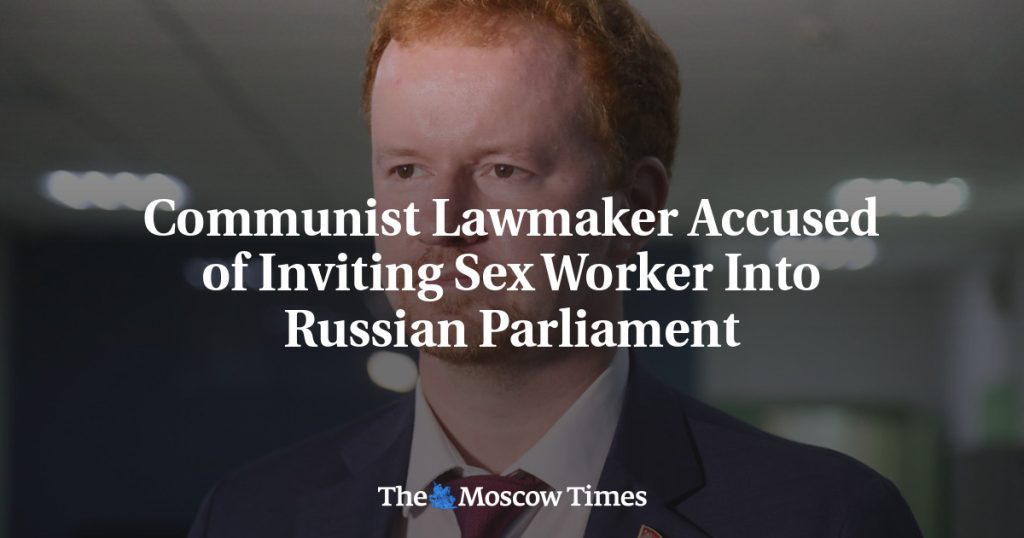A Communist Party lawmaker in Russia’s lower-house State Duma, Denis Parfenov, is facing allegations after a leaked video purportedly shows him receiving oral sex from a woman in his office. The video, circulated by a Telegram news channel, Shot, shows a man resembling Parfenov entering the office with a woman who then allegedly performs the act. Parfenov, who recently criticized Russia’s regional elections and opposed government efforts to slow YouTube loading speeds, has not commented on the leaked footage. The Communist Party’s central committee suggested that the alleged sex tape might have been AI-generated, and a party spokesman indicated that the video was heavily doctored, making it difficult to conclusively identify the individuals involved.
The allegations against Parfenov include solicitation of a prostitute, which is an administrative offense in Russia and a breach of the State Duma’s code of conduct. Leaked sex tapes and other compromising materials have been used in Russia since the 1990s to damage the reputations and careers of political figures. Party spokesman Alexander Yushchenko said that the video appeared to be heavily manipulated, and the woman in the video may have grounds to sue for defamation. The whereabouts of the woman in question are unknown, but a news outlet linked to exiled anti-Kremlin billionaire Leonid Nevzlin reported that they had contacted her and she confirmed her visit to the State Duma, accompanied by an unidentified man.
The reaction to the allegations against Parfenov has varied within the Communist Party and beyond, with some suggesting the video is fabricated or manipulated, while others emphasize the administrative and ethical breaches involved. Parfenov’s lack of response to the video has raised questions about his involvement and the authenticity of the footage. The Communist Party, known for its opposition to the government, faces internal and external pressures as the allegations against one of its members go public. The party’s central committee’s response underscores the complexity of navigating such scandals in Russia’s political landscape, where leaked materials have long been used as tools for tarnishing reputations and influencing public opinion.
The leaked video involving Denis Parfenov raises broader questions about the use of compromising materials in Russian politics and the potential impact on individuals’ careers and reputations. As a member of the State Duma and the Communist Party, Parfenov’s alleged actions point to the challenges of maintaining ethical standards in a political environment known for its use of coercion and manipulation. The implications of the allegations against Parfenov extend beyond his individual case, highlighting the ways in which personal scandals can intersect with political agendas and power dynamics in Russia. The controversy surrounding the leaked video serves as a reminder of the risks faced by public figures in a country where compromising materials are often weaponized for political gain.
The response to the allegations against Denis Parfenov reflects the broader tensions within the Communist Party and the Russian political landscape, where accusations of misconduct and corruption are not uncommon. The party’s central committee’s suggestion that the video may have been AI-generated underscores the complexities of dealing with such scandals in an era of advanced technology. The varying reactions to the video highlight the challenges of navigating public scrutiny and maintaining credibility in a context where trust in political institutions is often low. As the situation unfolds, it remains to be seen how the Communist Party, Parfenov, and Russian authorities will address the allegations and their potential implications for the political landscape in Russia.














